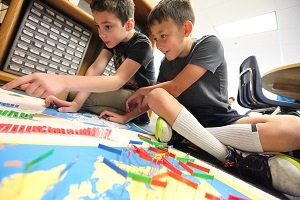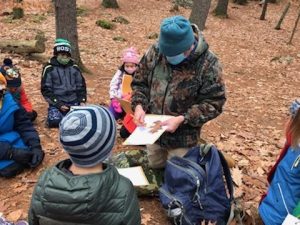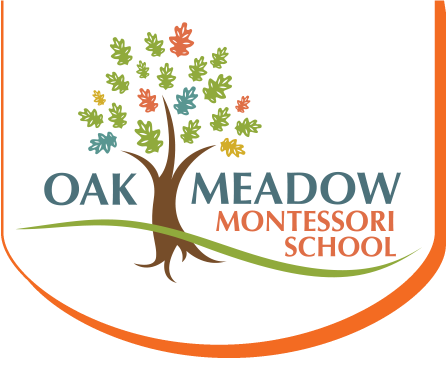Many parents and teachers are already beginning to think about what schools and education should look like once we are no longer dealing with COVID. While it is tempting to just focus on getting past the pandemic as the primary goal, this crisis has given us an opportunity to realize that the traditional model of education has never worked well for children.
That’s the message of early education teacher and author Erika Christakis. She writes, “Parents are not only seeing how flawed and glitch-riddled remote teaching is — they’re discovering that many of the problems of remote schooling are merely an exacerbation of problems with in-person schooling… As distance learning has (literally) brought home these realities about how we educate young children, an opportunity to do things better presents itself–not just for the duration of the pandemic but afterward as well.” *
What is striking about this statement is that it sounds very much like what Dr. Maria Montessori said when she launched the Montessori movement as a scientifically-based challenge to the inadequacies of education in the industrial era. Following Dr. Montessori’s leadership as a scientist and educator, the teachers at our school today continue to use the latest research in child development, neuroscience, and social-emotional learning to guide what we do every day in and out of the classrooms.
 Here is a list of the 5 most essential changes that are needed in education after COVID, according to Erika Christakis and other educational researchers, along with a description of the very proactive approach we take to teaching and learning at Oak Meadow School.
Here is a list of the 5 most essential changes that are needed in education after COVID, according to Erika Christakis and other educational researchers, along with a description of the very proactive approach we take to teaching and learning at Oak Meadow School.
- Schools today need to move away from a narrow definition of content knowledge (based solely on testing metrics) which are disconnected from the relevant knowledge and skills needed by students today. At Oak Meadow our curriculum is rich and broad–in literature, civics, history, science, math, world language, music, drama, art, physical education and nature. Our curriculum is designed to encourage strong reading and writing skills, critical thinking, emotional development, independence, and collaboration. Students develop the skills and resources necessary to become self-motivated, self-directed learners and consequentially end up better prepared and perform at high levels on standardized tests.

- Teachers today need to offer more face time with students one-to-one, rather than having students go off on their own and learn from an iPad. At Oak Meadow our teachers prioritize conversations with students, and devote time each day to nurturing meaningful relationships with their students which helps students to discover topics that are meaningful and relevant personally and in the world around them.
- Schools need to move away from having students sitting in rows with teachers lecturing from the front of the classroom. At Oak Meadow students move throughout the learning environment all day long. They move between desks or tables with other students, or work with materials on the floor. They are drawn to the activities and materials in the “prepared environment” of a Montessori classroom. The teacher is constantly moving about the room, checking in with students to see how they are doing. In any classroom, you will see a combination of students deeply engaged and working in a self-directed manner, while others are working together, talking, and solving problems collaboratively.
- Schools need to provide many more opportunities for hands-on learning, especially outdoors. At Oak Meadow, students regularly use the outdoors to extend what they are learning in the classroom. Students have access to outdoor learning spaces and quickly move toward many school projects that involve making connections to the local community. Our school has a full-time naturalist who integrates learning outdoors into the curriculum, developing a deep sense of respect and responsibility for each other and our world.
- Schools need to stop using rigid schedules where students of the same age move together from one subject to the next, with no time to allow for deeper inquiry or discovery. Oak Meadow has multi-age classrooms, where students can work at their own pace and benefit from the experience of older students. Students have large blocks of uninterrupted work time where they can make independent but guided choices about how to spend their time doing work that is meaningful to the student.
These are just a few of the ways that Oak Meadow continues to create learning environments that are active, alive with learning, connected to the social and emotional lives of children. As the school constantly adapts to new research and the changes occurring in the world, students are deeply immersed in both the knowledge and skills that are essential to be successful and happy in school and beyond.
*Erika Christakis, is the author of the book, The Importance of Being Little: What Young Children Really Need From Grownups. She is also the author of the article, School Wasn’t So Great Before COVID, Either, The Atlantic, December 2020





